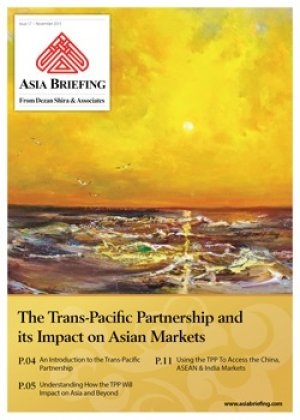The Philippines Resumes Tax Audits Following Internal Review
The Philippines has announced the implementation of Circular 91-2016 resuming field audits and other field operations of the Bureau of Internal Revenue (BIR). With effect from September 1st, the circular overrules a previous suspension of BIR field capabilities issued on July 1st under Revenue Memorandum Circular (RMC) No. 70-2016.
Understanding the Previous Suspension
The suspension has been touted as a means of fine tuning the BIRs capabilities and increasing government revenue. Outlined under RMC No. 70-2016 the suspension has by all accounts been used to address lengthy processing times for audits and investigations, as well as a chance to investigate claims that authorities within the BIR were abusing their positions for financial gain. While suspension of audits and investigations were rolled out as part of this internal review, administration officials have constantly maintained that they have not been canceled outright.
 RELATED: International Tax Planning Services from Dezan Shira & Associates
RELATED: International Tax Planning Services from Dezan Shira & Associates
Field Capabilities of the BIR
With the ban lifted, companies operating in the Philippines should assess their current state of compliance with Philippine taxation and understand that the capabilities of the BIR, which will once again be permitted. Key capabilities to be aware of include:
- Issuance of Letters of Authority (LOA): the official document which empowers a Revenue Officer to examine and scrutinize a Taxpayer’s books of accounts and other accounting records. LOAs may be delivered in person or via electronic means.
- Issuances of Letters of Notice: prior to the issuance of an LOA, the BIR utilizes letters of notice to inform companies of an impending investigation. Following the receipt of a letter of notice, companies are prohibited from amending previous filings and returns.
- Issuances of Mission Orders: allow regional tax offices to assign personnel to specific localities for the purpose of conducting spot checks on corporate tax compliance.
 RELATED: Philippines to Lower Corporate Income Tax Under Duterte
RELATED: Philippines to Lower Corporate Income Tax Under Duterte
Implications for Tax Compliance
From the perspective of investment, resumption of tax audits should be viewed with cautious optimisim. While the tactics of the Duterte adminsitration have been critized as overhanded, the administration’s commitment to reform has thus far proven genuine. Those conducting business in accordance with Philippine law will likely find the BIR to be more responsive following the internal review.
For those with open and pending BIR investigations, or otherwise unsure of the legality of their current state of compliance, it is highly recommended that a review of operations be conducted, and relevant government bodies be consulted with pertinent questions. Given the Duterte administration’s propensity for shock and awe tactics and commitment to cracking down on tax evasion, it is likely that resumption of auditing could create serious liabilities for a select few.
For more information on the lifting of the BIRs audit ban or for assistance regarding taxation within the Philippines, please email asean@dezshira.com or visit www.dezshira.com.
|
Asia Briefing Ltd. is a subsidiary of Dezan Shira & Associates. Dezan Shira is a specialist foreign direct investment practice, providing corporate establishment, business advisory, tax advisory and compliance, accounting, payroll, due diligence and financial review services to multinationals investing in China, Hong Kong, India, Vietnam, Singapore and the rest of ASEAN. For further information, please email asean@dezshira.com or visit www.dezshira.com. Stay up to date with the latest business and investment trends in Asia by subscribing to our complimentary update service featuring news, commentary and regulatory insight. |
Annual Audit and Compliance in ASEAN
For the first issue of our ASEAN Briefing Magazine, we look at the different audit and compliance regulations of five of the main economies in ASEAN. We firstly focus on the accounting standards, filing processes, and requirements for Indonesia, Malaysia, Thailand and the Philippines. We then provide similar information on Singapore, and offer a closer examination of the city-state’s generous audit exemptions for small-and-medium sized enterprises.
 The Trans-Pacific Partnership and its Impact on Asian Markets
The Trans-Pacific Partnership and its Impact on Asian Markets
The United States backed Trans-Pacific Partnership Agreement (TPP) includes six Asian economies – Australia, Brunei, Japan, Malaysia, Singapore and Vietnam, while Indonesia has expressed a keen willingness to join. However, the agreement’s potential impact will affect many others, not least of all China. In this issue of Asia Briefing magazine, we examine where the TPP agreement stands right now, look at the potential impact of the participating nations, as well as examine how it will affect Asian economies that have not been included.
 An Introduction to Tax Treaties Throughout Asia
An Introduction to Tax Treaties Throughout Asia
In this issue of Asia Briefing Magazine, we take a look at the various types of trade and tax treaties that exist between Asian nations. These include bilateral investment treaties, double tax treaties and free trade agreements – all of which directly affect businesses operating in Asia.
- Previous Article Singapore Removes Spot Pricing Requirements for Precious Metal GST Exemptions
- Next Article Indirect Taxation Across ASEAN









